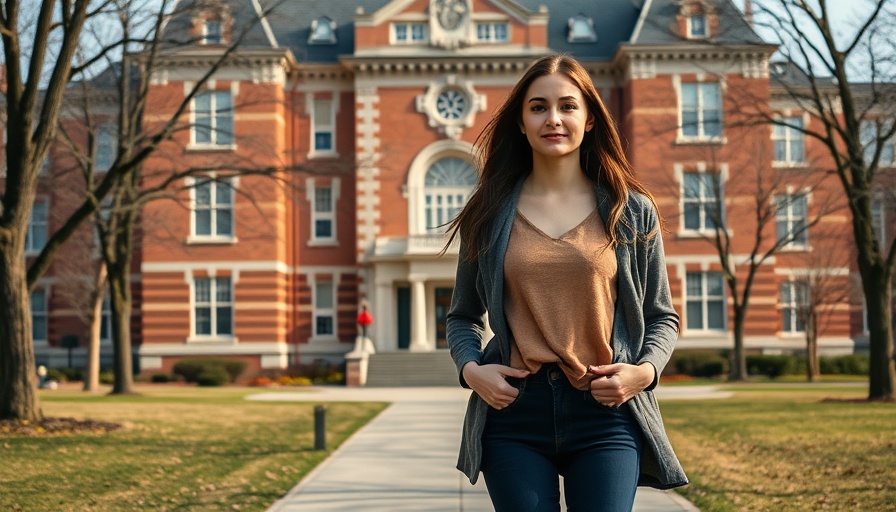
Trump's Bold Move to Restrict Foreign Student Entry
In a surprising executive order signed on Wednesday, President Donald Trump is poised to dramatically reshape the landscape of higher education in America by effectively blocking nearly all foreign students from entering the United States to attend Harvard University. This latest initiative aims to dismantle what the administration perceives as a national security risk posed by the Ivy League institution, which hosts a significant population of international scholars.
The National Security Argument
In the executive order, Trump contended that allowing Harvard to retain its current influx of foreign students jeopardizes national security. He stated, "I have determined that the entry of the class of foreign nationals described above is detrimental to the interests of the United States because... Harvard’s conduct has rendered it an unsuitable destination for foreign students and researchers.” This rhetoric suggests a growing concern within the administration regarding the influence of foreign nationals in American educational settings.
Harvard's Position: A Fight for Autonomy
Harvard University has vehemently opposed the allegations made by the Trump administration, arguing that it has fully complied with requests for information regarding foreign student conduct. Nevertheless, the government’s narrative paints the university as a barrier to national safety. This battle marks the culmination of months of tension, which includes substantial actions taken by the government that jeopardize Harvard’s funding and reputation.
Increasing Strain on International Relations
As the Trump administration intensifies its scrutiny of Harvard, it not only impacts the university's operations but also raises questions about the future of international collaboration in academia. With foreign students making up a substantial portion of Harvard's enrollment, particularly in certain graduate programs, this move could have long-lasting implications for America's reputation as a welcoming destination for global talent.
The Fallout for International Students
The executive order directly affects an estimated 7,000 international students, who are integral to maintaining Harvard’s diverse academic environment. This could lead to significant disruptions in academic pursuits for students who have been making plans to study in the U.S. The order does provide a small loophole, allowing entry for students deemed to provide a "benefit to national interest,” but this introduces a layer of uncertainty and fear surrounding the admission process.
Potential Legal Challenges Ahead
Legal experts anticipate that the executive order will likely face immediate challenges in the courts. Just last week, a federal judge in Boston blocked the Department of Homeland Security from enforcing a ban on international students, highlighting the contentious nature of Trump's policies against Harvard. The new order may invoke different legal avenues, making it imperative for Harvard and potentially others affected by this decision to prepare for further legal battles.
Impact on Public Higher Education
Beyond Harvard, this move poses a broader threat to the principles of public higher education in the United States. Critics argue that such pressures from the federal government could deter international students from choosing U.S. universities in favor of institutions in other countries that portray themselves as more inclusive and welcoming.
Conclusion: A Crucial Moment for Academia
The tension between the Trump administration and Harvard reflects deeper divisions within the United States regarding immigration, national security, and the autonomy of educational institutions. As the executive order sets forth restrictions, the educational landscape could undergo significant shifts that will redefine America's openness to global scholarship. Those invested in the future of education, policy-making, and international collaboration must pay close attention to the unfolding situation and its broader implications.
 Add Row
Add Row  Add
Add 




 Add Row
Add Row  Add
Add 








Write A Comment